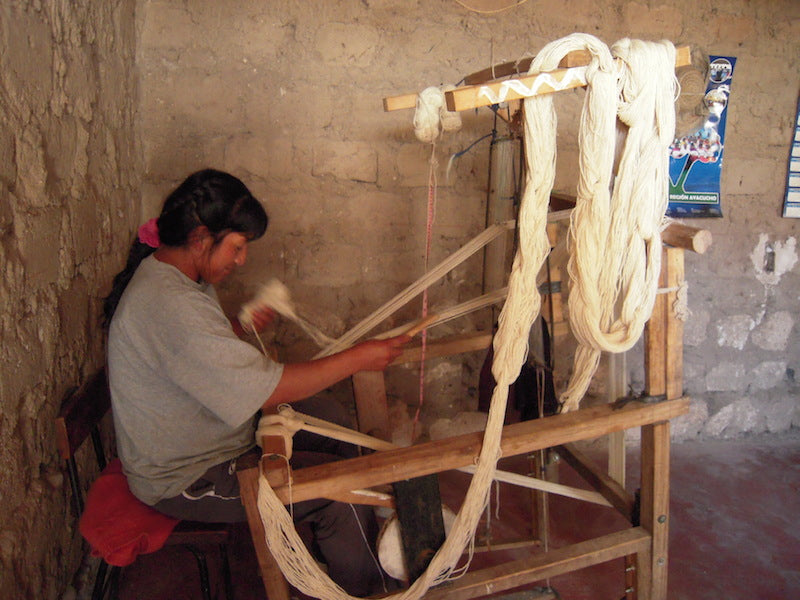How to Make a Peruvian Guitar Strap
We get a lot of questions at Original Fuzz about how our Peruvian guitar straps are made and what we mean when we say that each strap is as unique as the artisan that makes it. We know it can be confusing because each Peruvian strap comes in standard patterns like the Doug Martsch, Gray Stripes, or the Kurt Vile, but each one is also unique. So, let me clear up this contradiction by explaining how these straps are made.
Each step of the process is done by hand:
- Dye the wool
- Weave the pattern
- Stamp out the leather
- Sew the Peruvian textile to the backing fabric
- Add the metal hardware
- Finish with full-grain leather and heavy-duty stitching
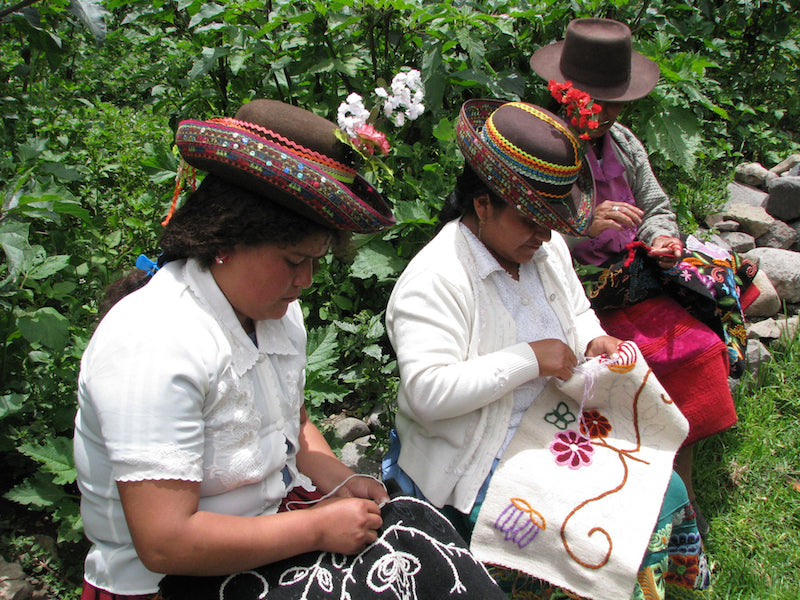
Dying the Wool
First the wool is harvested and dyed in Peru. This is done in the traditional manner and we often have to navigate around issues such as the wool supply and access to dye. Our Dick Dale pattern is sold out right now because there's been a shortage of that particular shade of green. We've replaced it with an equally beautiful, but darker green, that we're calling the Duane Eddy. Much of Peru is rural and mountainous, and road closings can affect the colors and patterns that we have available. So, if you see a style or color you like, grab it now. It won't necessarily be there in the future.
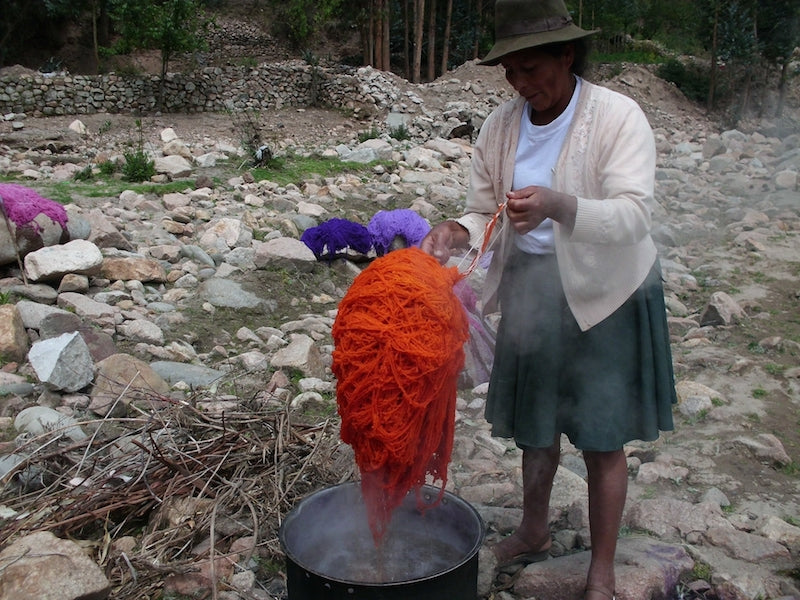
Weaving the Pattern
Next, each pattern is woven by hand. Some, such as the Cusco, are more intricate than others. You'll always see some slight variation with each Cusco pattern. You probably won't notice much variation with the Gray Stripes pattern because that one is a little bit easier to match by hand. Each artisan is working with standard patterns, but their personality shines through in each strap. We don't design any of these ourselves. They are all native to Peru and have been passed down in their families and villages for generations. If there's some minor variation, it's ok with us. Everyone gets a guitar strap that's one-of-a-kind. We believe it's one of the keys to making this product special.
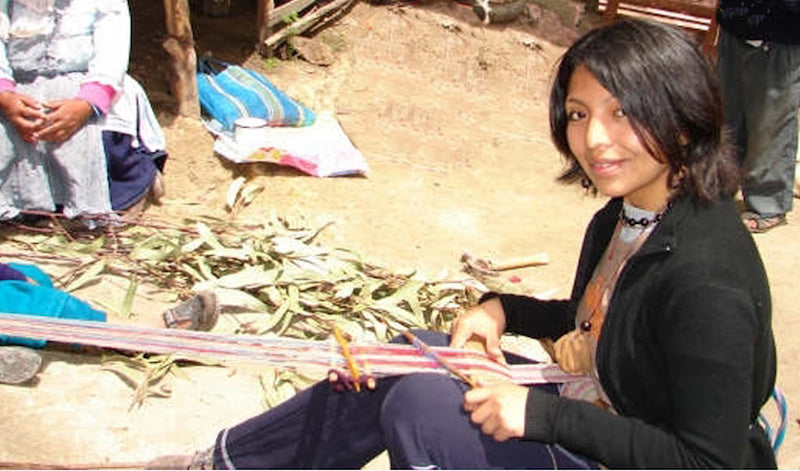
Finished in Mexico
Once our Peruvian artisans have woven the wool into a guitar-strap-shaped textile, we send it to Guanajuato, Mexico, a region that is renowned for its quality leather work. At our manufacturing partner's facility in Mexico the Peruvian textile is sewn onto a soft backing for extra strength. We add antique-style metal hardware that won't break and sew on full-grain leather end tabs with heavy duty stitching. This is all done by hand with the help of some modern tooling.
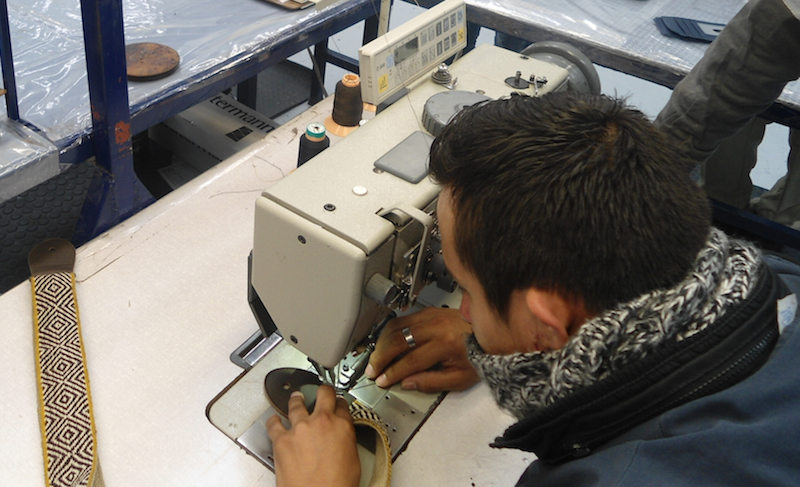
Fair Trade Guidelines
The humanity of the people in Peru and Mexico shines through in this product. We visit Peru every few months to check in with the the co-ops and family businesses that we hire. We work with them to navigate road closings, changing wool supplies, and many other day-to-day issues that come with doing business in a rural, mountainous country like Peru.
Many of our artisans are women who work from home because they're able to do their job while their small children play nearby. There are no workplace toxins or pollutants. We're working on getting official Fair Trade certification for our supply chain, but it's a long process, so right now we can only assure you that we work hard to follow the Fair Trade guidelines in everything we do. If you have specific questions about our supply chain, don't hesitate to contact us.
So that's it in a nutshell. We're proud of how our straps are made. We're making a positive impact on local economies in Peru and Mexico, as well as in our hometown of Jacksonville, FL. Our Peruvian straps are truly beautiful. Any guitar player is sure to love them.
Our Artisans in Action
